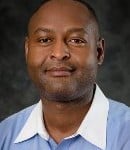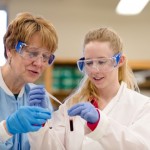 Stephen Techtmann (Bio Sci/GLRC) is the PI on a project that has received a $239,475 research and development grant from the U.S. Department of the Interior. The project is titled “Bilge Water Microbiomes as Biosignatures of Maritime Provenance.”
Stephen Techtmann (Bio Sci/GLRC) is the PI on a project that has received a $239,475 research and development grant from the U.S. Department of the Interior. The project is titled “Bilge Water Microbiomes as Biosignatures of Maritime Provenance.”
This is the first year of a potential three year project totaling $883,735.








